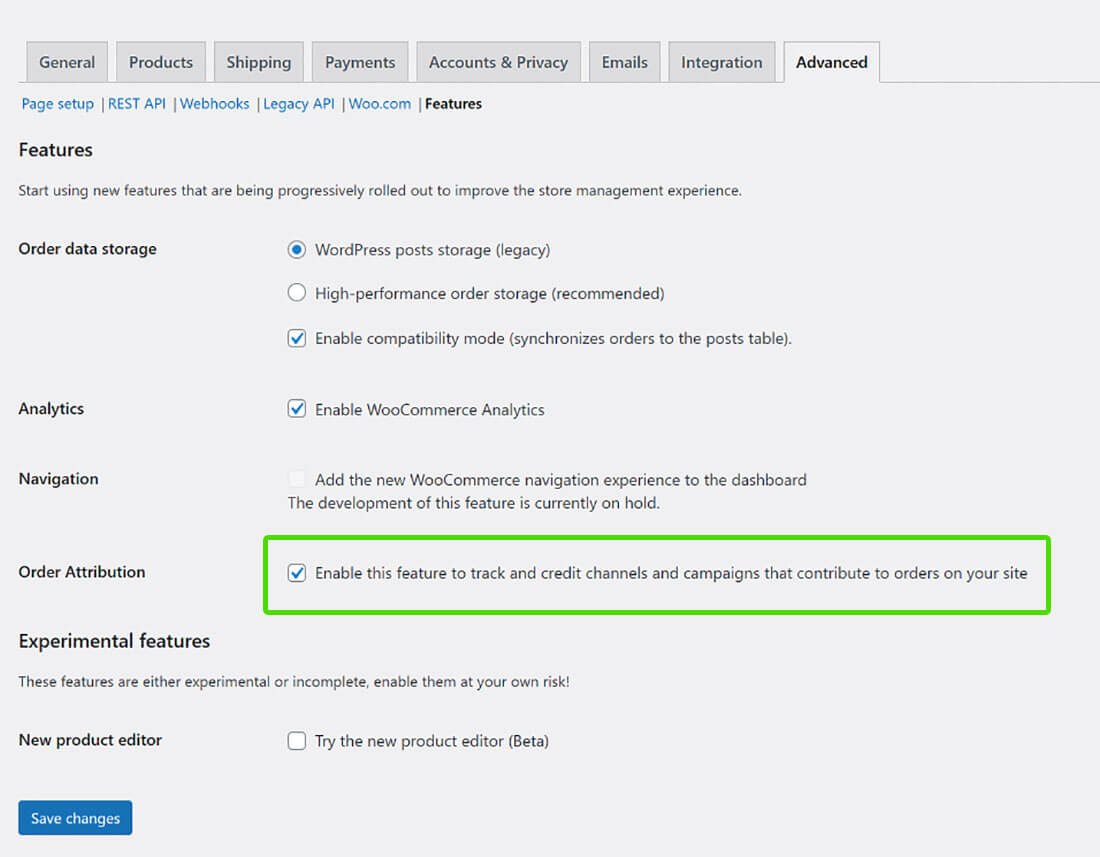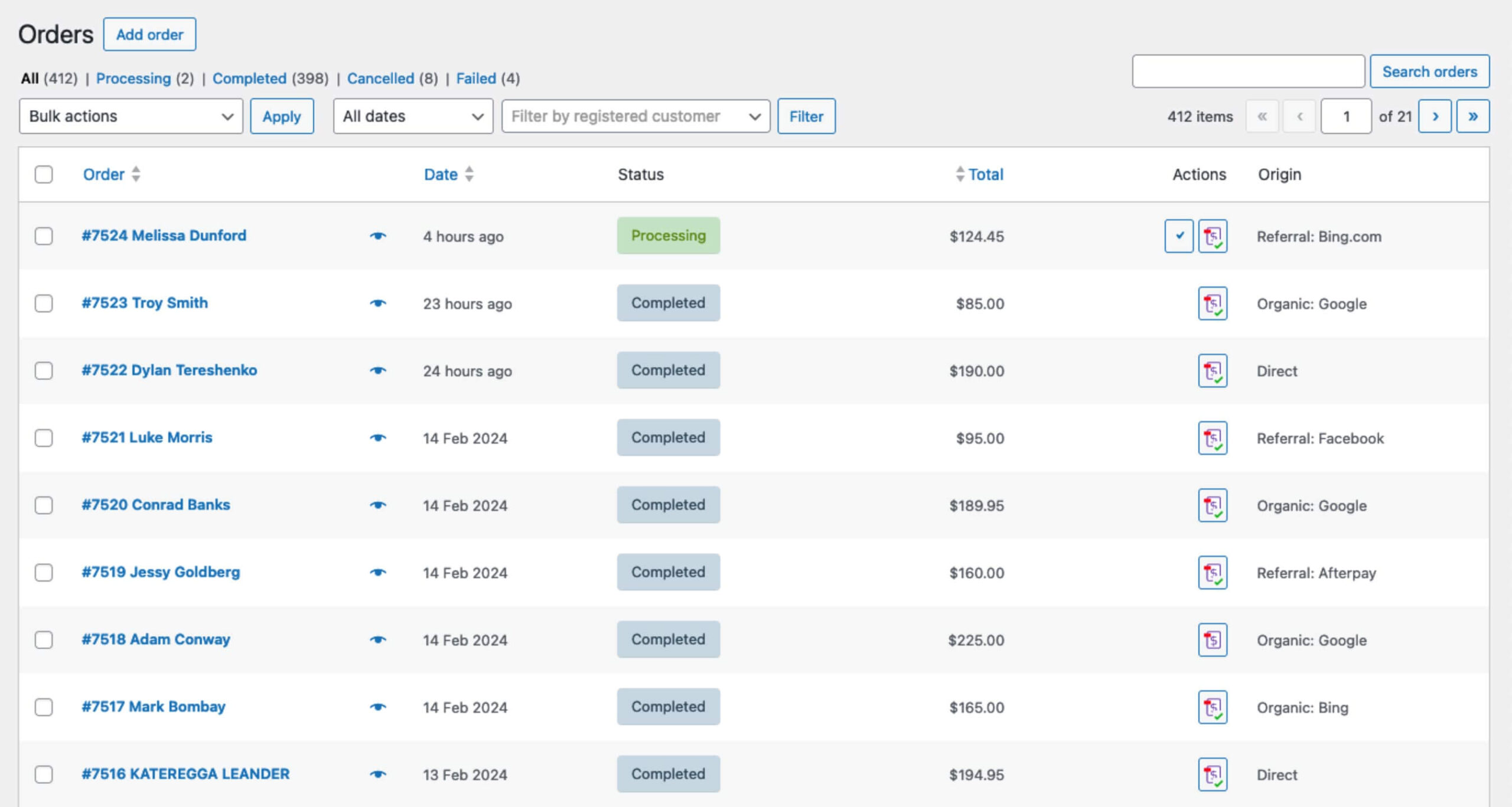WooCommerce has rolled out a groundbreaking marketing analytics feature with its recent update to version 8.5.0 – the Order Attribution Tracking. This feature offers valuable insights into the traffic sources contributing to your WooCommerce orders.
How to Enable Order Attribution
Upon updating to WooCommerce 8.5.0, the Order Attribution feature is automatically activated. Access this feature through WooCommerce > Settings > Advanced > Features. Ensure the “Enable this feature to track and credit channels and campaigns that contribute to orders on your site” checkbox is selected and save changes.

Navigating Order Attribution Reports
The Order Attribution report is conveniently located on both the WooCommerce Orders page and individual Order pages.
Orders > Origin Column
A new “Origin” column has been incorporated into the Orders table, displaying the Source or UTM Source value.
Order > Order Attribution
Upon entering a specific order, a new “Order Attribution” metabox provides additional attribution data, including UTM Source, UTM Medium, UTM Campaign, Device Type, and the number of pages visited during the session. WooCommerce has also introduced a “Customer History” metabox, presenting Total Orders, Total Revenue, and Average Order Value (AOV) of the customer.

Understanding the Attribution Model
The Order Attribution feature adopts the last-click attribution model, widely used by marketing attribution tools like Google Analytics. This model assigns 100% credit to the last-click source, with some exceptions:
- UTM parameters and organic sources take precedence over the previous source.
- A direct visit does not override the previous source.
- Referral sources override the previous source only after a 30-minute session.
Drawbacks of Last-Click Only Attribution Model
- Limited Insight into First-Click Source: The last-click model does not reveal the visitor’s initial traffic source, critical information for first-time customer analysis.
- Reporting Inconsistencies: Similar to Google Analytics, the last-click model may misreport conversions as “organic” sources, leading to potential data discrepancies.
- In adopting the Order Attribution Tracking feature, WooCommerce users gain a powerful tool for understanding their customer journey and optimising marketing strategies.
Ready to elevate your eCommerce experience and make the most of WooCommerce’s new features? If you need expert guidance or assistance with eCommerce development, I’m here to help. As a seasoned WooCommerce expert and PHP developer, I specialise in creating tailored solutions to enhance your online presence. Whether you have questions about Order Attribution Tracking or need assistance with any aspect of eCommerce development, feel free to reach out.





